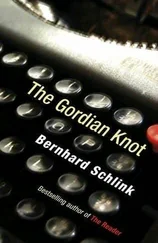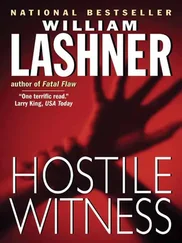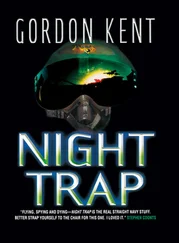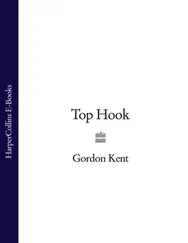“Chen.”
Shreed saying, contempt in his voice, when Alan had asked if the Chinese officer was his control, “Chen?” as if Chen was a word for shit.
“Yeah. We think that if we could get this Chen, we could salvage something here. What happened to him?”
“I was pretty much out of it by then.” Meaning that his civilian friend Harry and Harry’s assassin girlfriend had had another agenda, and they had been the only good guys left standing at the end of the fight, so they had got whatever was left of Chen.
“If we had him, we’d bury Shreed’s buddies over at the Agency.” The ONI man, a full captain, shook his head. “Is Chou alive, do you think?”
“Chen. It’s Chen.”
“Okay, whatever! If there’s a chance that sonofabitch is still alive, we want to know. That would be something, if we could bring him in. Commander, you hearing me?”
Alan was hearing a sound and couldn’t place it, a distant drone. He was trying to say something to Dukas but he couldn’t hear, and then it was too late to ask anything, and the blood was draining out of him and he wondered if the sound was the aircraft that was supposed to lift them out.
“Money,” Alan said now to Admiral Pilchard. “Shreed said something about money. When he was talking about Chen and poison. I wanted to ask him about it, but then the aircraft came and—”
Alan stared at the wall of the Pentagon office, still hearing the S-3 that had come to take them out of Pakistan, still smelling the blood and feeling the wound in his hand. He’d thought that he had done some of the best work of his life, and now he was being read out for it. He wanted Pilchard, who was a damned good officer and a “sea daddy” to him sometimes, to say that he and Dukas had done a hell of a job and it wasn’t their fault that Shreed hadn’t talked. He wanted him to say that Alan should go back to sea and take over command of his detachment again. But what the admiral was dealing with was not Alan Craik, but a turf war between ONI and the CIA, with the Navy looking bad because one of its officers had broken a lot of rules to capture a man who could, in death, be made to wear a hero’s halo.
“If you know anything about what happened to this Chen, Commander, you better come out with it— quick. ” The ONI captain leaned in on Alan, and Pilchard waved him off with a shake of the head.
“Maybe I can find out,” Alan said. Maybe. Maybe Harry and Anna had nursed Chen back to life and were having picnics with him in Bahrain. Maybe Alan’s lost fingers would grow back, too.
“Don’t maybe me. Find out. ” The captain leaned away from him out of deference to the admiral, but he sounded threatening.
Admiral Pilchard stood to show the meeting was over. Alan looked him in the eye. “I’m sorry, sir,” he said. “I did what I thought was right.”
The admiral gave him a bleak little smile. “The Navy goes by results, Commander.”
Out in the corridor, the captain grabbed his arm. He was a big man who used his size to awe people. “Come up with a diamond, Mister Craik,” he snarled. “Come up with a diamond, or you’re going to be one early-out lieutenant-commander.”
Part One Targeting
400 NM east of Socotra, Indian Ocean.
Captain Rafe Rafehausen slammed his S-3B into the break and thought that he’d done it badly, out of practice, the move both too sudden and too harsh, and beside him he heard Lieutenant jg Soleck give a grunt. Rafehausen had an impulse to snarl and overcame it; he was the CAG and he didn’t fly enough and the kid was right—he should have done it better. Although, as he knew from the weekly reports, the kid’s landing scores were the worst on the boat.
“Gear one, two, three, down—and locked—flaps, slats out—hook is— down —read airspeed and fuel, Mister Soleck—”
The jg muttered the fuel poundage and airspeed, which Rafehausen could have read perfectly well for himself, of course. He supposed he was trying to communicate with the much younger man, who seemed mostly terrified of him.
“Not one of the great breaks of all time, Mister Soleck.”
“Uh—no, sir—but good, sir—considering—”
Rafehausen lined up dead-on, said, “Ball,” when he caught the green, and took the LSO’s instructions almost unconsciously, now into his groove and operating on long and hard-won experience. He caught the two wire, rolled, lifted the hook and let a yellow-shirt direct him forward.
“Nice landing, sir.”
Rafehausen smiled. “Little rough, Mister Soleck. Practice makes perfect.” He slapped the ensign on the shoulder. “Weeklies tell me you need some practice yourself.” He would have walked away then, but he saw the kid blush and look suddenly stricken, so he put the hand more gently on his shoulder and walked with him over the nonskid that way, shouting over the deck noise, “Don’t take it wrong, Soleck—we all get into slumps! Hey, how about you and me do some practice landings together sometime?”
He debriefed in the Det 424 ready room, which was his for the moment only because he’d borrowed one of their aircraft, and then made his way to the CAG’s office. He wished, often, that he was a squadron officer again—no stacks of paper, no wrangles with personalities and egos. Now that it was too late, he knew that when you were a squadron pilot, you were having the best that naval air offered; Soleck didn’t know how lucky he was. What came later—rank, status, command—were compensation for not being a young warrior with a multi-million-dollar horse and a whole sky to ride it in.
“Another urgent p-comm from Al Craik, Rafe,” a lieutenant-commander said as he sat down. “Same old shit—‘Request immediate orders,’ etcetera, etcetera.”
“What’s the medical officer say?”
“No way.”
“Even in non-flight-crew status?”
“Negative. MO says the man ‘needs to heal and overcome trauma, period, and don’t ask again.’ Another month, maybe.”
Alan Craik was a personal friend, and Rafehausen wished he could help him. Craik had been flown back to the carrier with part of one hand shot off and so much blood gone that the medics thought they’d lose him; now back in the States, he was recovered enough to be itching to return to duty. But not enough to serve.
“Send Craik a message over my name: the answer is no, and don’t ask again for at least two weeks.”
Unimak Canyon, Aleutian Archipelago.
“Depth is two hundred meters and steady.”
“Steady at two hundred.” The Chinese captain, standing by his command chair, turned and looked toward sonar station three, the towed array whose passive equipment had most reliably tracked the American. His crew had scored more contact hours on an American ballistic missile submarine in the last four days than any submarine in the history of the Chinese Navy. No moment of that time had been easy.
Even when he knew where the submarine would be, it was almost invisible.
Even trailing it by a mere four thousand meters, it was almost inaudible.
He dared not close any more. His own boat, the Admiral Po , was a killer, slow but sure—the best his service had to offer, but too loud and too old, and no amount of pious mouthing to the Party would change the fact that she leaked radiation from her reactor compartment. Her condition affected the crew, destroyed morale, made retention of the dedicated specialists vital to the service nearly impossible.
He was going to change that. He was going to follow an American ballistic missile sub, a “boomer,” from her base near Seattle to her patrol area, wherever that was. And he was going to take that information home and shove it down the throat of the Party until they paid the money to make his service the equal of her rivals in Russia, Great Britain, and, most of all, America. Because when he had the patrol area where the most precious eggs in the American nuclear basket rested, he would bury the army and the airforce.
Читать дальше












